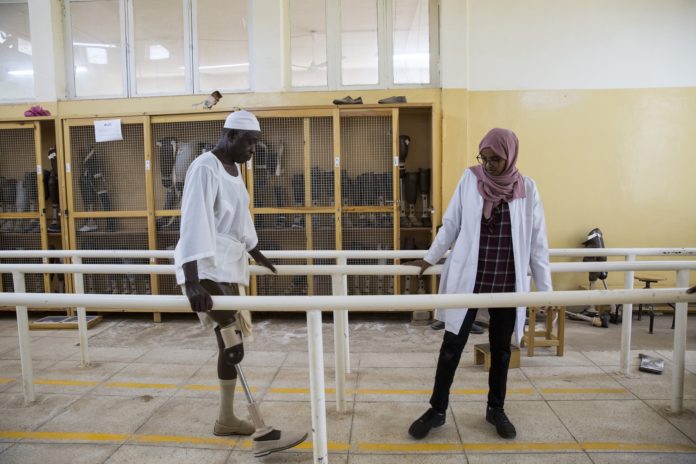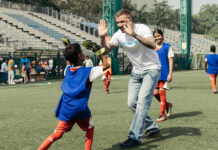
Geneva (NVI): With the goal of increasing sports opportunities and societal acceptance for people with disabilities, the International Committee of the Red Cross (ICRC) is in the midst of a major expansion of its sports programmes for people with disabilities.
In 2020, the ICRC will expand its programmes into nine new countries — Guinea Bissau, Laos, Mali, Niger, Nigeria, Pakistan, Togo, Ukraine, Vietnam — bringing the number of countries to 27 where the ICRC is helping to support those with disabilities through sports.
That represents a 50 per cent increase in ICRC’s programmes, an ICRC statement said today.
The long-term goal is big. To break down the stigma associated with physical disability and create structures in societies that allow people with disabilities to reach their full potential.
“Let’s make sure people with disabilities are not held back by misconceptions of what they are capable of. Let’s promote pathways to employment and education, and let’s counter the assumption that someone who had childhood polio or was hit by a landmine cannot function as a parent or productive employee. They can,” ICRC’s Disabilities, Sport and Inclusion Advisor, Jess Markt said.
December 3 is observed as International Day of Disabled Persons, which can serve as a reminder and a conversation starter about people who live with disabilities year-round.
Markt, a university-level athlete in high jump at the University of Oregon in the United States, before a car accident put him in a wheelchair, leads the ICRC’s sports programmes for the disabled worldwide.
“December 3 has become a day that we can focus on issues like inclusion. It’s an important day to call out disability rights and awareness worldwide. The challenge is the need to remember and include this community year-round,” said Markt, who is currently attending a major wheelchair basketball tournament in Pataya, Thailand, where six ICRC-supported teams are competing as part of the 2020 Tokyo Paralympics qualifier.
One country where the ICRC works with disabled athletes is South Sudan. As many as 80 wheelchair basketball players, including 15 women, are now gathering in Juba for three weeks of training that will culminate in a tournament on December 12-13.
“When I’m playing, I forget about my disability. I put all my heart in it because it’s an opportunity to learn,” said a player, Mary Hezekiah. “Nothing would be impossible for people with disabilities if we were given the right means, but we are seen as nobodies,” she added.
There are few services available in South Sudan for people living with disabilities and only three orthopedic centres and all supported by the ICRC, where people can receive physical therapy and mobility devices like prosthetics and wheelchairs.
“We see new patients every day at the ortho centers, many of whom suffered amputations following gunshot wounds,” said James Reynolds, the ICRC’s head of delegation in South Sudan.
“It is a stark reminder of how this conflict has irreversibly altered the lives of so many. We hope that this tournament helps to break the stigma and exclusion around disabilities,” he added.







